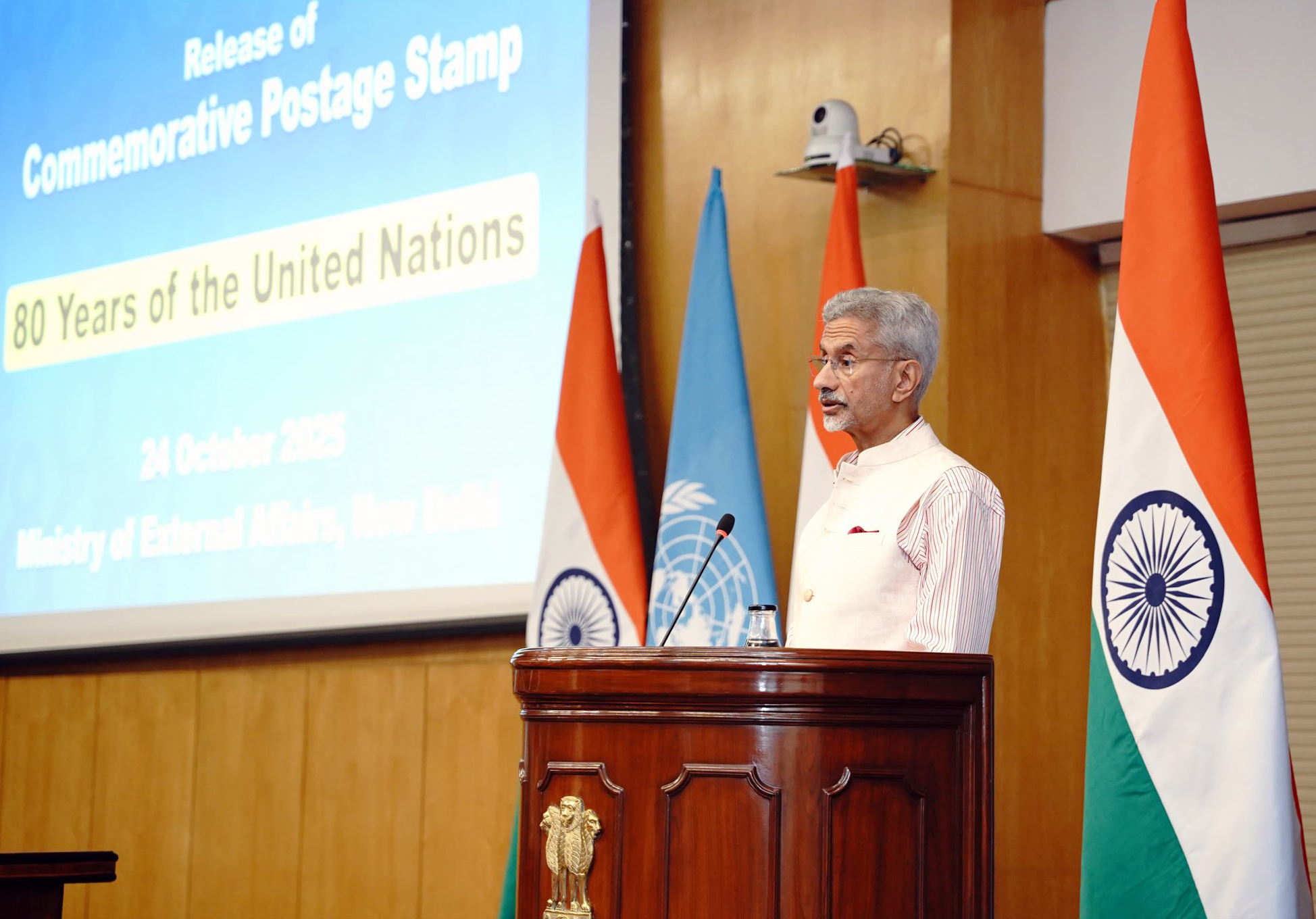External Affairs Minister S. Jaishankar on Friday said that “all is not well” within the United Nations, asserting that the organisation’s decision-making no longer reflects its membership nor addresses global priorities. He was speaking at an event marking the 80th anniversary of the United Nations in New Delhi, where a commemorative postage stamp was launched by the Department of Posts.
Jaishankar lauded the ministry’s open competition on the MyGov portal for designing the UN@80 postage stamp, which saw participation from over 7.4 lakh students across India. The winning design, he said, captured the global yearning for peace in a time of widespread conflict.
“Even today, we are regrettably witnessing multiple major conflicts that not only take a great toll on human lives but also impact the well-being of the entire international community,” Jaishankar said. “The Global South, in particular, has felt this pain even as the more developed have insulated themselves from consequences.”
He reiterated India’s steadfast commitment to the ideals of peace, security, development and multilateralism. “India has always been, and will continue to be, a strong votary of the United Nations and multilateral cooperation,” he said. “Our contribution to global peace and security is reflected in our consistent support for peacekeeping.” Referring to India’s recent Chiefs of Army Staff Conclave held in New Delhi, which saw participation from 30 troop-contributing countries, he said the event reaffirmed India’s leadership and dedication to global peace efforts.
However, the minister cautioned that the UN is facing deep structural and political challenges. “Its decision-making neither reflects its membership nor addresses global priorities. Its debates have become increasingly polarised and its working visibly gridlocked,” he said. “Any meaningful reform is obstructed using the reform process itself, and now, financial constraints have emerged as an additional concern. How to sustain the UN even while seeking its reinvention is clearly a major challenge before all of us.”
Citing terrorism as one of the UN’s biggest tests, Jaishankar said the organisation’s credibility has suffered due to political double standards. “Few examples are more telling about the challenges facing the UN than its response to terrorism. When a sitting Security Council member openly protects the very organisation that claims responsibility for barbaric terror attacks such as at Pahalgam, what does it do to the credibility of multilateralism?” he asked.
Referring to the April 22 Pahalgam attack that killed 26 tourists, including 25 Indians and one Nepali, he said India’s response through precision strikes under Operation Sindoor was a demonstration of its resolve against terrorism. “If victims and perpetrators of terrorism are equated in the name of global strategy, how much more cynical can the world get? When self-proclaimed terrorists are shielded from the sanctioning process, what does it say for the sincerity of those involved?” he added.
Jaishankar also voiced concern over the slowing progress of the Sustainable Development Goals (SDG) Agenda 2030, calling it a key indicator of distress in the Global South. “If the maintenance of international peace and security has become lip service, the predicament of development and socio-economic progress is even more serious,” he said. “There are many more, whether it is trade measures, supply chain dependence or political domination.”
Despite his sharp critique, Jaishankar struck an optimistic tone, urging nations to renew their commitment to multilateralism and collective action. “Yet, on such a notable anniversary, we cannot abandon hope. However difficult, the commitment to multilateralism must remain strong. However flawed, the United Nations must be supported in this time of crisis. Our faith in international cooperation must be reiterated and indeed renewed,” he said.
Concluding his address, Jaishankar said the gathering itself was symbolic of shared purpose. “What unites us is what is most important, and the fact that we are meeting here today sends a message in itself,” he noted.














